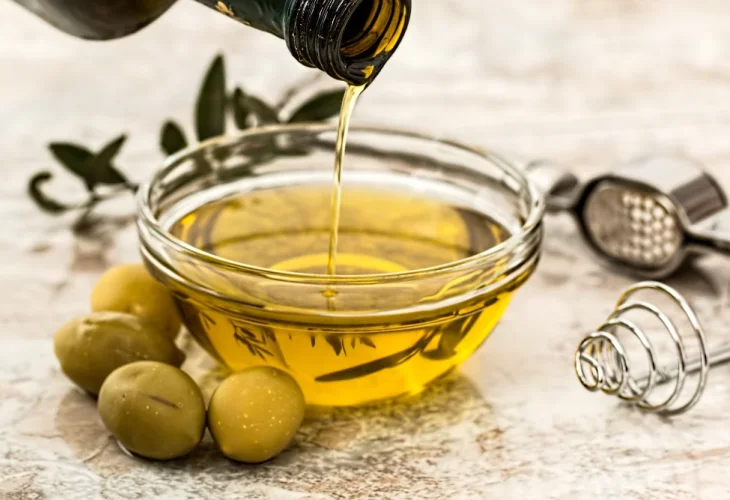Is Olive Oil the Secret Ingredient Your Kitchen Needs?
Explore the versatility of olive oil: when it shines in cooking and baking and when you might want to opt for something else.

Olive oil is much more than just another kitchen ingredient – it's a symbol of health, tradition, and unique taste that's been with us for many years. However, many people use it for seasoning but shy away from frying, baking, and cooking with it. In this article, we'll delve into when to choose it for frying, its smoke point, and its pros and cons compared to other oils.
Olive Oil and Smoke Point
The smoke point of olive oil, the temperature at which the oil starts to burn and emit smoke, is considered relatively high:
- Extra virgin olive oil: around 190-210 degrees Celsius.
- Refined olive oil: can reach up to 230 degrees.
At these temperatures, you can easily fry, bake, and even roast without problems, as long as you're not using especially high temperatures over 200 degrees.
High Oxidative Stability
Olive oil contains antioxidants (polyphenols) and monounsaturated fat, which give it high durability in cooking. This is unlike other vegetable oils that tend to break down faster in heat and produce free radicals that might harm health.
Great for Light and Medium Frying
You can definitely use olive oil for light and medium frying, like sautéing, searing meat, or frying vegetables. For deep frying at particularly high temperatures, other oils like canola might be preferable due to their higher smoke point.
Preserving Nutritional Values
Some of the polyphenols and vitamins in olive oil are retained even after light cooking, so it continues to contribute to health even after heating.
Tips for Cooking and Frying with Olive Oil
- Prefer extra virgin olive oil for short frying and light cooking, thanks to its high nutritional values.
- Don't be afraid of moderate heating. Olive oil remains safe for use in most cooking methods.
- Avoid burning the oil. If you notice smoke, lower the temperature to prevent the breakdown of materials and unhealthy by-products.
Is Olive Oil Suitable for Baking?
Olive oil can indeed be used in baking, especially in recipes for savory pastries like bread, focaccias, and even pound cakes.
Advantages in Baking:
- Soft texture and rich flavor: Olive oil gives pastries a rich texture and mild flavor.
- Health: Provides healthy fats compared to butter or processed oils.
Disadvantages:
- Strong flavor: May be too dominant in some sweet pastries.
- Not suitable for every recipe: In some cases, like delicate pastries, it might be better to use a more neutral oil.
Olive Oil Compared to Other Oils
Olive Oil
- Smoke point: 190-210 degrees.
- Advantages: Rich in antioxidants and monounsaturated fat, contributes to heart health and reduces inflammation. Suitable for light frying, cooking, and baking.
- Disadvantages: Relatively strong flavor, less suitable for deep frying at very high temperatures.
Canola Oil
- Smoke point: about 220 degrees.
- Advantages: Neutral taste, suitable for deep frying and cooking. Contains a relatively high amount of monounsaturated fat.
- Disadvantages: Undergoes processing, relatively low antioxidant levels.
Coconut Oil
- Smoke point: about 175 degrees.
- Advantages: Stable in light frying, provides a unique flavor. Contains relatively stable saturated fat for heat.
- Disadvantages: High in saturated fat, not suitable for all types of dishes due to the prominent coconut flavor.
Sunflower Oil
- Smoke point: about 230 degrees.
- Advantages: Neutral taste, resistant to deep frying.
- Disadvantages: Low in antioxidants, tends to break down quickly and produce free radicals at high temperatures over time.
Avocado Oil
- Smoke point: about 270 degrees.
- Advantages: Very high smoke point, suitable for deep frying, rich in monounsaturated fat and antioxidants.
- Disadvantages: Relatively expensive, rich taste that may be too dominant.
Bottom Line
Olive oil is an excellent choice for light frying, cooking, and baking – as long as you maintain suitable temperatures. It not only adds unique flavor but also provides significant health benefits. Compared to other oils, it is more stable and considered one of the healthiest choices. If you know how to use it correctly, olive oil can become a central tool in your kitchen.

